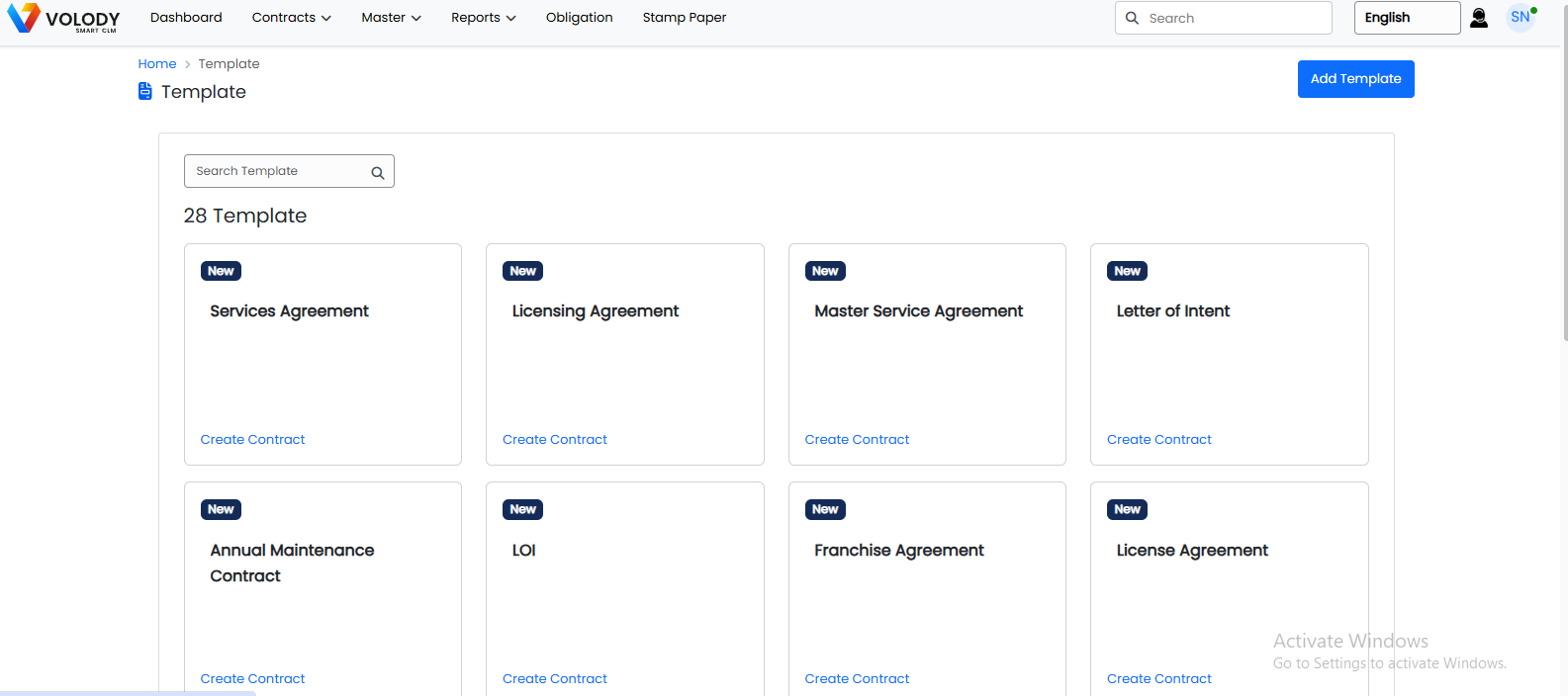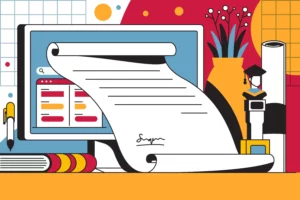The hospitality industry revolves around delivering smooth operations and exceptional guest experiences. Managing contracts with vendors, suppliers, and service providers plays a significant role in achieving this. These agreements outline expectations, ensure timely execution, and mitigate potential risks. However, contracts manually can be time-consuming, leading to missed deadlines and compliance issues. This is where hospitality contract management software steps in, processes, and ensures all stages of the contract lifecycle—creation, negotiation, execution, and renewal—are managed efficiently.
This blog will explore the essentials of hospitality contract management, including its importance, common challenges, and best practices. It will also cover different types of agreements used in the industry and how a central system can enhance compliance, reduce risks, and optimize vendor relationships. Finally, we will discuss how automation like contract management software can transform hospitality contract management for better efficiency and profitability.
Understanding the Basics of Hospitality Contract Management

Hospitality contract management is about managing agreements with different people and groups. It is important to set clear rules for agreements. This means listing out what each party expects and what they have to do. Timely execution and keeping track of the agreements are also key parts of this process. Good hospitality contract management helps everyone involved stay aligned, which lowers the chances of confusion or problems.
A good hospitality contract management process has many benefits, such as:
- Lower Risks: Clear terms in agreements help cut down the chances of arguments and legal issues.
- Better Compliance: A central system for agreements makes it easier to follow industry rules and company policies.
- More Efficiency: Automated tasks make work faster and lower the chances of mistakes.
- Insights from Data: Hospitality contract management systems give useful data on vendor performance, spending habits, and other important metrics, helping you make better choices.
The Importance of Contracts in the Hospitality Industry
Vendor agreements are very important in hospitality for smooth operations. These contracts explain the rules for all kinds of services, like food, drink supplies, linen services, and maintenance. A good agreement helps protect both the hospitality business and the vendor. It makes sure everyone knows what to expect and stays responsible.
Effective hospitality contract management does more than explain terms. It aims to boost agreement performance. It’s important to regularly check if vendors are following the rules, meeting service agreements, and delivering what they promised on time. When hospitality businesses manage agreement performance well, they can keep their service quality high and ensure guests are satisfied.
Contract management helps find problems early. By watching performance metrics and looking at data, businesses can fix any issues quickly. They can change terms if needed or look for other vendors to get the best results.
Overview of Contract Types in Hospitality
The hospitality industry uses many types of agreements to run its operations. It’s important to know the different agreements and what they require. This knowledge helps with the procurement process and builds strong vendor relationships.
Some common agreement types include:
- Vendor Agreements: These are agreements that describe the service terms for products and services given by sellers. This can include food suppliers, linen companies, or technology providers.
- Service Level Agreements (SLAs): SLAs clearly state the specific metrics and standards the vendors must follow. This helps ensure that there is consistent quality and reliability in their services.
- Non-Disclosure Agreements (NDAs): NDAs keep business information private between parties. This is especially important in technology partnerships or when sharing data.
Each type of agreement has a specific role. It needs close attention when being written, talked about, and completed. Knowing these types of agreements well helps hospitality businesses build good vendor relationships. This practice also allows them to keep high service standards.
Related Article: What is Contract Workflow? Benefits of Automating Approvals
Key Challenges in Hospitality Contract Management

Managing agreements in the hospitality industry can be tough. There are often many agreements across different hotels or departments. This can make it hard to follow important dates, duties, and performance metrics. Plus, the hospitality industry is always changing. This means agreements often need updates and renewals, which makes things even more complicated.
Without a central system and clear processes, businesses can miss important deadlines. They might also forget about their contractual obligations or run into compliance problems. Managing agreements by hand can take a lot of time, lead to mistakes, and hurt operational efficiency.
Navigating Compliance and Regulations
The hospitality industry has strict rules to follow. These rules cover food safety and data privacy. Businesses need to make sure their agreements follow all the necessary laws. If they do not, they could face large fines, legal problems, or harm to their reputation.
Compliance in hospitality contract management means adding the right clauses and getting the needed permits and licenses. It also means following data security rules. It is important to stay updated on changing regulations. You should update agreement templates as needed to stay compliant over time.
It is very important to create a culture of compliance in the organization. Training workers about regulatory requirements is key. Having clear rules for agreement review and approval can help reduce risks. It also promotes ethical business practices.
Addressing Common Pitfalls in Manual Contract Management
Relying on manual processes for hospitality contract management can put businesses at risk. It can lead to many potential risks and cause inefficiencies. Here are some common pitfalls to avoid:
- Lost or Misplaced Contracts: When we use paper to manage documents, it’s easier for agreements to get lost. This makes it hard to find them quickly, which can cause problems with following rules.
- Missed Deadlines: It is easy to miss agreement deadlines when tracking them by hand, especially when there are many agreements. This can lead to missed renewals, expired licenses, or forgotten responsibilities.
- Inconsistent Version Control: Without a centralized system for managing documents, different versions of an agreement may be in use. This can confuse and lead to disputes.
Using a strong agreement management solution can reduce these risks. It does this by automating manual tasks. It also creates a central location for all agreements. Additionally, it makes sure that version control and audit trails are in place.
Related Article: Failed CLM Implementation? Here’s the Ultimate Fix
Best Practices for Effective Contract Management in Hospitality

Effective contract management is a constant process. It needs a proactive attitude, careful attention, and proper tools. When hospitality businesses follow best practices, they can improve their agreement processes. This helps them reduce risks and stay compliant.
This means setting up clear rules and templates. It also involves working together with stakeholders. Plus, it uses analytics to keep improving over time.
Establishing Clear Contract Guidelines and Processes
Clarity and consistency are key to good hospitality contract management. When we have standard agreement processes and clear guidelines, it makes important tasks easier. This way, all team members will follow the same steps.
Start by defining the roles and tasks related to hospitality contract management. Who will draft, review, approve, and sign the agreements? By clearly outlining these roles, you reduce confusion and encourage responsibility. Next, create standard agreement templates. These should include all the important clauses, terms, and conditions. This will save time and help keep all agreements consistent and in line with the rules.
Having a centralized contract repository, such as a digital document management system or a specific contract management solution, gives you one place for all your contact information. This makes it easy to access your agreements. You can store them securely and quickly get them back when you need them.
Enhancing Collaboration Among Stakeholders
Contract management in the hospitality industry includes many groups, such as legal, procurement, operations, and vendor representatives. It is very important to encourage teamwork and communication between these groups. This helps make sure that hospitality contract management and implementation are successful.
Regular communication tools like meetings, emails, or a shared platform in a hospitality contract management system help keep everyone updated. They let everyone know about the status of agreements, deadlines, and any problems that may come up.
You should ask for feedback often from stakeholders who take part in the agreement process. Did they face any challenges? Are there ways to improve? Getting valuable insights from those directly involved can help make agreement processes better and fix any hold-ups.
Hospitality businesses can negotiate, execute, and manage agreements better by working together and having open communication. This teamwork helps them every step of the way.
Leveraging Data Analytics for Contract Optimization
In today’s world where data is important, using analytics is key to improving contract management practices. Hospitality contract management systems collect a lot of data. This includes agreement value, renewal dates, vendor performance metrics, and more.
By looking at this agreement data, hospitality businesses can see trends, patterns, and valuable insights, including those that align with industry standards. These insights can help them make smart choices. For example, checking vendor performance data might show chances to change contract terms, combine suppliers, or find other ways for cost savings. Data analytics can also help spot issues in the agreement process. It can measure how well agreement templates work and keep track of compliance metrics.
Hospitality businesses can use data to do more than just manage agreements. They can actively improve their contract portfolio. This helps them work better, save money, and reduce risks.
Related Article: What is Contract Management? Your Detailed Guide
Mitigating Risks Through Strategic Contract Management

Contracts come with risks. These can include issues like not following rules, disagreements with suppliers, or losing money. It is important to use a smart strategy in hospitality contract management. This strategy should aim to reduce potential risks before they happen.
By using strong risk management practices, hospitality businesses can protect their interests. This includes carefully reviewing agreements, keeping track of performance, and planning for unexpected events. These actions help reduce possible problems and keep the business running smoothly.
Identifying and Managing Contractual Risks
Effective risk management starts by finding possible risks in contracts. This means reviewing agreement terms in detail. It also includes looking into the backgrounds and records of vendors. Additionally, it is important to consider how outside factors, like changes in the economy or new laws, may affect the situation.
Once you find the risks, make a plan to reduce them. This plan+ should say what you will do for each risk. You might want to talk about better agreement terms, such as clauses that limit liability. You could also think about including performance guarantees or penalties. Lastly, try to use different suppliers, so you are not relying on just one vendor.
Regularly check how vendors are performing. Do agreement audits from time to time. This helps make sure everything is okay, find any problems, and fix them quickly. By managing risks in agreements, businesses in hospitality can reduce disruptions. They can also protect their money and keep a good reputation.
Ensuring Compliance and Avoiding Legal Pitfalls
Navigating the many rules in the hospitality industry can be tough. Not following these rules can result in large fines, legal issues, and harm to a business’s reputation. Using good hospitality contract management practices, including understanding contract obligations, can lessen these risks. It makes sure that agreements follow all the laws and standards of the industry.
|
Legal Area |
Potential Pitfalls |
Mitigation Strategy |
|
Data Privacy |
Non-compliance with data protection laws |
Incorporate data processing agreements & data security clauses |
|
Food Safety |
Breaches in food handling and hygiene regulations |
Implement strict vendor compliance protocols and audits |
|
Consumer Protection |
Misleading advertising or unfair contract terms |
Ensure transparency & clarity in all client-facing agreements |
Related Article: What is a Joint Marketing Agreement? A Comprehensive guide
How Can Volody CLM Help in Streamlining Contract Management?

Volody CLM offers a complete set of features and an easy-to-use interface. It helps make hospitality contract management better in the industry by providing visibility into agreements. With Volody, users can create, negotiate, execute, monitor, and renew contracts all in one place. It brings together all agreement information and automates important tasks. This makes it easier for stakeholders to work together.
With Volody, you can easily access all your agreements in one place. You can get reminders for important deadlines. You can also track how well your vendors are doing. This makes your work much simpler and more organized.
How Volody Simplifies Contract Management Processes
Volody makes hospitality contract management easier and faster. Their simple contract management tool is made just for the hospitality industry.
Say goodbye to manual data entry and lots of paperwork. Volody’s easy-to-use interface lets you create new agreements at your fingertips in less time. You can use customizable templates to ensure everything is consistent and meets the rules. After drafting an agreement, start your free trial of Volody contract management software today; Volody’s automated workflow helps it get approved. It keeps everyone informed at each step and removes delays for stakeholders.
This simple method improves operational efficiency. It lowers the chances of mistakes. It also lets your team focus on important goals instead of handling lots of paperwork.
Automation: A Game-Changer in Contract Lifecycle Management
Automation is key in Volody’s contract management solution. It changes how hospitality businesses handle agreements from start to finish. From creating the first draft to renewal or ending an agreement, Volody uses AI and smart algorithms. This automates important tasks, which saves time and lowers the chance of mistakes.
Volody’s automated reminders and notifications make sure you don’t miss important deadlines, including alerts for agreement renewals, payment due dates, and upcoming audits. Volody keeps you updated, so you can avoid penalties or lost chances. Plus, our solution tracks agreement performance in real-time.
It gives you insights into how well vendors are following rules, meeting SLAs, and other important metrics. Embrace automation with Volody. It helps you manage agreements better. This way, your team can work smarter instead of harder throughout the contract lifecycle.
Related Article: Essential Guide to Sales and Purchase Agreement
Conclusion
In conclusion, good management of hospitality agreements is very important for business success. Companies should set clear rules and work well together. Using data analytics can help them improve their processes and reduce risks. Tools like Volody can simplify tasks and use automation to make hospitality contract management easier. It is important to follow the law, avoid legal problems, and increase value for better efficiency and cost savings. Following the best practices in hospitality contract management can improve work performance and build trust and transparency in the hospitality industry. Companies can stay ahead by using new technology to remain competitive in this changing field.
FAQs
What Are the Benefits of Using Hospitality Contract Management Software?
Contract management solutions help businesses work better by bringing all agreement data together. They automate tasks and make teamwork easier. With greater transparency and easy access to contract information, automated reminders also support better decision-making and lower risks.
Can Contract Management Software Integrate with Other Hospitality Management Systems?
Yes, many contract management solutions work with other hospitality management systems like CRM or ERP software. This connection makes work easier. It helps keep agreement information organized and improves operational efficiency.





